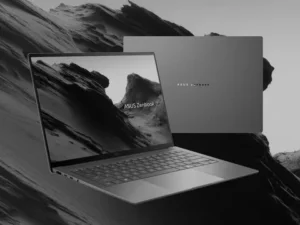OpenAI is set to challenge Google’s dominance in search with its new “SearchGPT” prototype, combining AI capabilities with web information to provide quick, relevant answers.

SearchGPT is intended to answer questions posed by the user with current information from the web while providing clear links to the sources.
AI Search company, OpenAI, is directly targeting search giants such as Google and Bing with the release of its new product: SearchGPT.
Presently, in the experimentation of a limited number of users/publishers, SearchGPT operates the conversational sophistication of OpenAI’s LLMs, together with real-time information to offer a “quick, correct answer with clear and pertinent sources. ”
“Getting answers on the web can take a lot of effort,” OpenAI said in a statement. “We believe that by enhancing the conversational capabilities of our models with real-time information from the web, finding what you’re looking for can be faster and easier,” the statement added.
This change is the emergence of its search platform that poses a threat not only to such search giants as Google and Bing but also AI-based search chatbots like Perplexity.
Microsoft is already integrating OpenAI’s tools in its search, to incorporate AI-driven capacities.
Still, in contrast to most search engines that still ask users to go through many pages of offered links under one query, SearchGPT says it will provide “answers to your questions using the latest information from the web with clear links to the source. ”
“Google’s empire hinges on search but lacks a cleaner, contextual, and conversational experience,” said Neil Shah, VP for research and partner at Counterpoint Research. “This is where OpenAI could turn the industry upside down with growing usage and making SearchGPT the cornerstone for their future GPT models.”
According to OpenAI users can ask follow-up questions, similar to a natural dialogue, with SearchGPT continuously building upon the context of their search.
“ChatGPT ushered in a paradigm shift from passive ‘search’ to active ‘seek’, revolutionizing how we interact with information,” said Prabhu Ram, VP for Industry Research Group at CyberMedia Research. “SearchGPT is OpenAI’s strategic next step, capitalizing on consumer enthusiasm for conversational AI and challenging industry giants like Google and emerging competitors like Perplexity.”
SearchGPT: Addressing publishers’ concerns
Another area where OpenAI’s SearchGPT is making an attempt is to tell how content by different publishers is collected and utilized and most importantly if the LLM model has the right credits going to the content creators .
“For decades, search has been a foundational way for publishers and creators to reach users,” the statement added. “SearchGPT is designed to help users connect with publishers by prominently citing and linking to them in searches.”
“While SearchGPT has emphasized content licensing agreements, it will be intriguing to observe how it addresses legal or ethical challenges around content usage — issues that have notably affected Perplexity AI,” said Ram.
Some of the most credible international media houses have sued OpenAI for copyright infringement and a few of the publishers asserted that their millions of articles were used to train ChatGPT. Forbes, in June this year, alleged that Perplexity violated the copyright law by downloading its content without prior consent of the publisher, never mind the fact that it failed to attribute the content to the rightful owner.
Since the launch, OpenAI has stated it will not repeat the same mistake and go the extra mile to avoid rendering a harmfully competitive environment for publishers and creators emphasized that it would include sources nearer to the searches, thereby making it easier to credit sources of information.



